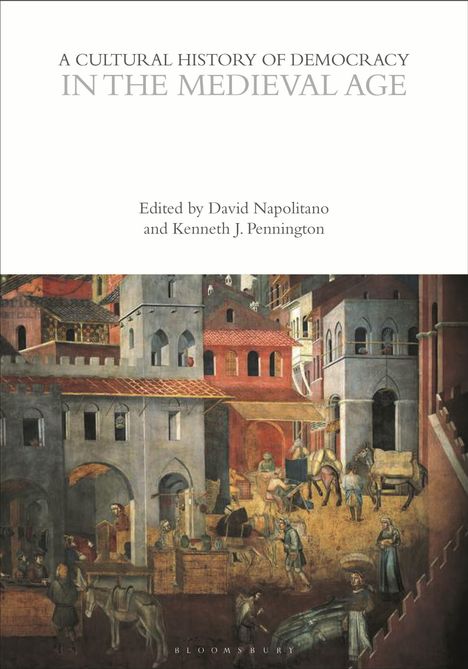A Cultural History of Democracy in the Medieval Age
A Cultural History of Democracy in the Medieval Age
Buch
- Herausgeber: David Napolitano, Kenneth Pennington, Eugenio Biagini
- Taylor & Francis Ltd (Sales), 02/2024
- Einband: Kartoniert / Broschiert
- Sprache: Englisch
- ISBN-13: 9781350440074
- Artikelnummer: 11557794
- Umfang: 280 Seiten
- Gewicht: 454 g
- Maße: 244 x 169 mm
- Stärke: 25 mm
- Erscheinungstermin: 8.2.2024
Achtung: Artikel ist nicht in deutscher Sprache!
Klappentext
Offering a broad exploration of the cultural history of democracy in the medieval age, this volume claims that, though not generally associated with the term, the Middle Ages deserve to be included in a general history of democracy. The term was never widely employed during this period, the dominant attitude towards democracy was outright hostility, and none of the medieval polities thought of itself as a democracy. Despite this, this study highlights a wide variety of ideas, practices, procedures, and institutions that, although different from their ancient predecessor (direct democracy) or modern successor (liberal representative democracy), played a significant role in the history of democracy.This volume covers almost 1, 000 years and a wide range of territories. It deals with different political spheres (ecclesiastical and secular) and socio-political settings (courtly, urban, and rural) and examines the phenomenon from the local level up to the universal realm. This volume adopts a broad cultural approach and is structured thematically.
Each chapter takes a theme as its focus: sovereignty; liberty and the rule of law; the common good; economic and social democracy; religion and the principles of political obligation; citizenship and gender; ethnicity, race, and nationalism; democratic crises, revolutions, and civil resistance; international relations; and the scalability of democracy beyond the limits of a single city. These ten themes add up to an extensive, synoptic coverage of the subject.


